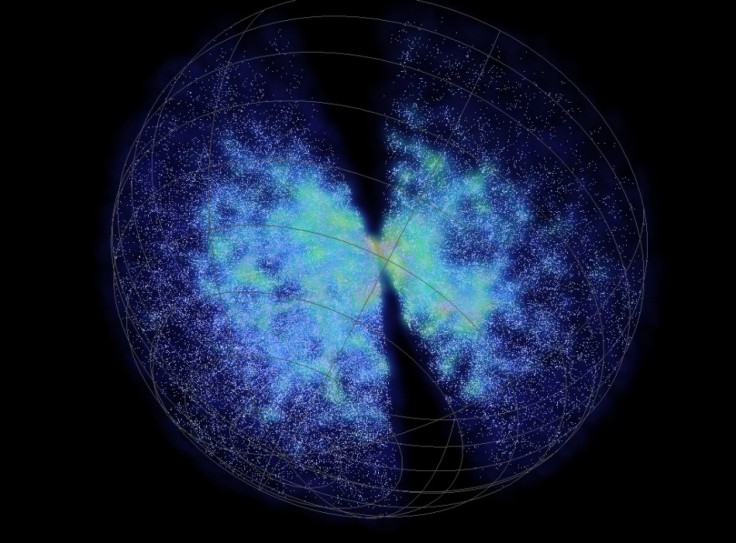The Expansion of The Universe: A New Way to Measure its Speed

How fast does the universe expand? A new measurement, the most accurate one to date, was introduced by a Ph.D student in Australia.
Florian Beutler, a Ph.D candidate at The International Centre for Radio Astronomy Research (ICRAR) at The University of Western Australia, has calculated the speed of the universe's expansion by measuring the Hubble constant.
According to NASA, the expansion or contraction of the universe depends on its content and past history. With enough matter, the expansion could slow down or even become a contraction. On the other hand, dark energy drives the universe toward increasing rates of expansion. The current rate of expansion is usually expressed as the Hubble Constant (in units of kilometers per second per Megaparsec, or just per second).
As the universe constantly grows, it carries galaxies away from our own Milky Way. The Hubble constant links how fast galaxies are moving with how far they are from Earth.
Through analyzing light coming from a distant galaxy, the speed and direction of the galaxy can be easily measured.
But it is much more difficult to determine the galaxy's distance from Earth. Up until now, calculation of their distance was conducted through observing the brightness of individual objects within the galaxy and using our knowledge about the object. This method was prone to systematic errors, leading Beutler to tackle the problem using a completely different method.
Beutler's work draws on data from a survey of more than 125,000 galaxies carried out with the UK Schmidt Telescope in eastern Australia. This is the biggest survey -- called the 6dF Galaxy Survey -- to date of relatively nearby galaxies, covering almost half the sky.
"The Hubble constant is a key number in astronomy because it's used to calculate the size and age of the Universe," Beutler said in a news release.
Because Galaxies are clustered rather than evenly distributed through space, a measurement targeted at the clustering galaxies allowed Beutler to come up with the Hubble constant with an uncertainty of less than 5 per cent.
"This way of determining the Hubble constant is as direct and precise as other methods, and provides an independent verification of them," said Professor Matthew Colless, Director of the Australian Astronomical Observatory and one of Mr Beutler's co-authors. "The new measurement agrees well with previous ones, and provides a strong check on previous work."
The measurement can be refined even further by using data from larger galaxy surveys. "Big surveys, like the one used for this work, generate numerous scientific outcomes for astronomers internationally," said Lister Staveley-Smith, ICRAR's Deputy Director of Science.
The new measurement of the Hubble constant is 67.0 ± 3.2 km s-1 Mpc-1, according to the study.
Beutler's study was published in the Monthly Notices of the Royal Astronomical Society Journal, 25 July 2011.
© Copyright IBTimes 2024. All rights reserved.





















